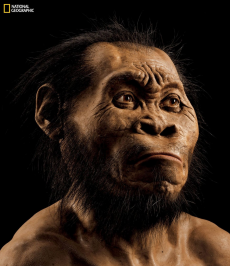
Email: ZYVC057@live.rhul.ac.uk
Total Article : 213
About Me:I'm a graduate student studying International Criminal Law and first started writing for King's News almost 4 years ago! My hobbies include reading, travelling and charity work. I cover many categories but my favourite articles to write are about mysteries of the ancient world, interesting places to visit, the Italian language and animals!

It was Charles Darwin in his theory of evolution that credited Africa with the origins of humankind and it is a theory that is largely still believed today. However during the 19th Century it was more commonly accepted that Asia had been humanity’s birthplace and this was certainly the belief of Dutch scientist Eugene Dubois who, ironically, was inspired by reading Darwin’s work growing up. Dubois set out with an archaeological team to Asia in 1886 and in 1891 found a human fossil on the island of Java in modern Indonesia. A fossil, in case you’re unaware, is the remains of a prehistoric plant or animal which is preserved in rock allowing it to still exist millions of years later as it is not exposed to weather conditions causing it to deteriorate.
Dubois’ discovery was the first hominini fossil discovered as part of a deliberate effort. An older fossil was discovered in 1856 but was of a homo neanderthalensis, an older group of hominini closer to ape than humankind. At the time most scholars did not agree with Dubois that this find was the gap between ape and man proving Darwin’s theory of evolution, albeit not necessarily from Africa, rather they thought it was a different tribe/species particular to that area in Indonesia, but today it is recorded as vital evidence in the theory of evolution.
Later in 1921 the Zhoukoudian project in China made several discoveries beginning with two human teeth (as we mentioned previously human teeth were one of the first bone structures to develop in homo erectus that we still have today). The site ended up providing over 200 human fossils from more than 40 people with two completely intact skulls enabling us to compare the likeness to current human skeletons. These finds in China added further weight to the argument that humankind originated in Asia. Darwin however maintained the African origin theory given that Apes and Chimpanzees originated solely from Africa, so our origins must be placed there.
In the 1950s more discoveries in East Africa confirmed Darwin’s theory and whilst some may still debate, it is generally accepted today that humankind originates from East Africa. They further built on this explaining that the hominini were cladogenetic meaning that some broke apart into sub species, explaining why we find some in Eurasia as well as Africa and also why not all apes and chimps developed in to humankind. The reason for this split could have been due to a number of factors but primarily shifting landscapes and weather conditions would have divided the tribes and their needs to adapt. Remember that this all happened over hundreds of thousands of years and that it was 2.5 million years ago! It sounds a bit simplistic to say some apes turned into humans and some didn’t, but it wasn’t an overnight change!
To a lesser extent we can still see some differences even between humankind today. The bone structure of someone native to East Africa is slightly different to someone native to Northern Europe which is slightly different in turn to someone native to Latin America. Now that we’ve covered our origins in Africa and Eurasia, check out the next articles in this series for how we came to be who we are today!
IMAGE SOURCE: https://www.haaretz.com/archaeology/.premium-1.793167

0 Comment:
Be the first one to comment on this article.